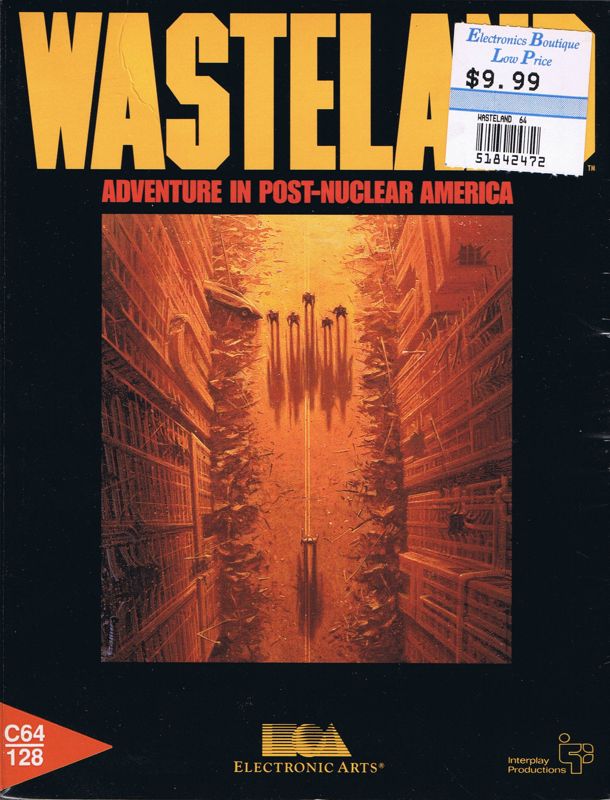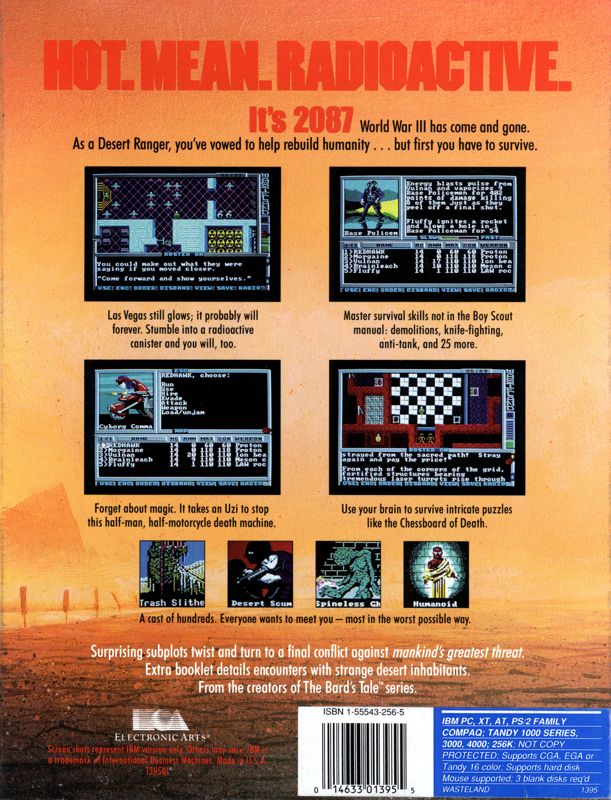Phil Spencer argues AAA publishers are "riding the success of franchises created 10+ years ago" in leaked mail
Ubisoft, Take-Two and co were "slow to react" to growth of game subscription services
Among the chunkier morsels from yesterday's leak of Microsoft documents is an extended email from Xbox CEO Phil Spencer, dating from 2020, in which he argues that today's largest AAA videogame publishers remain dogged by their "failure" to adapt to the shift from physical to digital videogame distribution, and especially, subscription models such as Microsoft's own
Game Pass. This inability to move with the times, Spencer suggests, has created a situation whereby the largest publishers rely on sheer "production scale" to attract and retain customers.
In turn, this has meant that publishers are unwilling to bet on new IPs - it could be billions down the drain, after all. Instead, "AAA publishers are milking their top franchises but struggling to refill their portfolio of hit franchises", while relying on "rented" IPs such as Star Wars. This is an older email, of course, and there's an obvious element of self-flattery in the shape of Microsoft talking up Game Pass. Still, it's a persuasive account of recent industry history, bolstered by Spencer's notes from conversations with Assassin's Creed outfit Ubisoft and GTA publisher Take-Two Interactive in particular.
I've republished the email excerpt in full below, with a few inserts to clarify the Important Business Acronyms. Thanks to
Ethan Gach for spotting.
In terms of subscriptions and the impact on larger publishers I realized that I haven't really done a good job sharing our view on the disruption AAA publishers potentially see and how their role in the industry will likely change with the growth in subscription platforms like Xbox Game Pass.
We should start with the question of why game publishers exist in the first place. And like many other forms of media the idea of a game publisher was created from an access "moat"; like movie studios locking up theater distribution, album companies locking up radio play, game publisher's scale in physical retail game sales allowed them to secure retail shelf space, in-store promotion and margin structure beyond what any individual studio could dictate when games were primary sold in retail stores. If you were a studio, you needed a AAA publisher to reach a customer at an Egghead software. [NB. Egghead Software was a brick-and-mortar retailer that went bankrupt in 2001.]
This constriction in the access from creator to consumer stayed in place for years and in that time AAA game publishers increased their control. The creation of digital storefronts like Steam, Xbox Store and PlayStation Store eventually [democratized] access for creators breaking physical retail's lock on game distribution.
AAA publishers were slow to react to this disruption. The AAA publishers did not find a way to leverage the moat that physical retail created in the digital realm in a way that had them continue their dominance of the game marketplace. They have not found a way to effectively cross promote, they have not found a way to build publisher brands that drive consumer affinity (the way Disney has in video), they did note create a social platform that would allow them reach beyond their aggregate IP [monthly active users].
Without a lock on physical distribution the role of the AAA publisher has changed and become less important in today's gaming industry. Over the past 5-7 years, the AAA publishers have tried to use production scale as their new moat. Very few companies can afford to spend the $200M an Activision or Take 2 spend to put a title like Call of Duty or Red Dead Redemption on the shelf.
These AAA publishers have, mostly, used this production scale to keep their top franchises in the top selling games each year. The issue these publishers have run into is these same production scale/cost approach hurts their ability to create new IP. The hurdle rate on new IP at these high production levels have led to risk aversion by big publishers on new IP.
You've seen a rise of AAA publishers using rented IP to try to offset the risk (Star Wars with EA, Spiderman with Sony, Avatar with Ubisoft etc). This same dynamic has obviously played out in Hollywood as well with Netflix creating more new IP than any of the movie studios. Specifically, the AAA game publishers, starting from a position of strength driven from physical retail have failed to create any real platform effect for themselves.
They effectively continue to build their scale through aggregated per game [profit and loss] hoping to maximize each new release of their existing IP. In the new world where a AAA publisher [doesn't] have real distribution leverage with consumers, they don't have production efficiencies and their new IP hit rate is not disproportionately higher than the industry average we see that the top franchises today were mostly not created by AAA game publishers. Games like Fortnite, Roblox, Minecraft, Candy Crush, Clash Royale, DOTA2 etc [were] all created by independent studios with full access to distribution.
Overall this, imo, is a good thing for the industry but does put AAA publishers, in a precarious spot moving forward. AAA publishers are milking their top franchises but struggling to refill their portfolio of hit franchises, most AAA publishers are riding the success of franchises created 10+ years ago.
With Xbox Game Pass we've created a new platform for AAA publishers to try to navigate. As we grow more sustained and predictable monetization of gameplay through our subscription platform we will have more insight, revenue stability and incentive to invest in new experiences to continue to drive the subscription momentum.
Yves Guillemot's, CEO of Ubisoft, comment to us was with the growth of subscriptions like XGP he will double down on creating value on his existing franchises but cut back on new risk bets as he has no mechanism like XGP that helps amortize the investment risk in any piece of content across an entire subscriber base.
UbiSoft and EA are two publishers trying to build a subscription now but kind of like their reaction to Steam 15 years ago they are not moving quickly or boldly enough to scale. They also lacked a platform like Xbox console to launch on top of launching on Xbox, as we know, gave us access to a large player base, creator base and monetization base.
We launched our new subscription platform from the existing device platform. We've offered to help AAA publishers, and we are with EA Access carried in Xbox Game Pass Ultimate this year (very possible that Ubisoft's subscription comes to XGPU as well) but overall the AAA publishers are too reluctant to put $60 retail at risk to create a more predictable revenue stream and without an existing per user monetization platform they lack real distribution.
On the flipside, the individual studio or smaller publishers see XGP as an incredible way for a studio to get their IP in front of millions of players, offset risk by selling us an XGP window for their title, and gain the viral exposure that gameplay on our network provides. The vast majority of XGP's early release, non [first party] games are independent studios offsetting their title risk by working with us on a window and doing so successfully.
XGP and our ID@Xbox program are two main reasons why we've seen a 3x increase in developers on Xbox this generation compared to the 360 generation. Circling back to [Take-Two Interactive] on Friday. They have supported us with XGP, they were a launch partner and continue to participate, even with their biggest game Grand Theft Auto. They are interested in bringing their second biggest franchise, Red Dead Redemption, to XGP as well. But they are also concerned about the transition and how XGP will impact their long term economics and if they are being honest on Friday this should come up.
Much like how Netflix disrupted video, gaming subscriptions will disrupt the AAA publishers, whether it's our subscription, Apple Arcade or Amazon's coming subscription, this change is coming. Our goal is to find a way to both grow our subscription (which is our new platform) and help the AAA publishers build towards a successful future. For publishers with 2-3 scale franchises that's a difficult transition.
Again, taking a clue from Hollywood, it's not clear how a standalone subscale media publisher grows is this world without adapting to new paradigms or getting consolidated but we believe we can help a Take 2 by increasing monetizable [total addressable market] across more endpoints inside of a global platform like Xbox Game Pass (inclusive of xCloud).
I'm not sure how deep the discussion with Take 2 will go on Friday but this would be a good discussion with them. They are living the disruption to their model and we are hoping this will come through. They are a good partner but also leery of these changes. Our team has these discussions with publishers all the time and we always learn from our partners as they try to navigate the moving ecosystems.
If you missed yesterday's leak-extravaganza - which, as
has now been revealed, stemmed from Microsoft themselves accidentally uploading a load of internal correspondence, presentations and pitch documents as part of legal proceedings with the FTC over the Activision-Blizzard acquisition - here are some highlights.
Firstly,
Microsoft are still very keen on buying Nintendo (and Valve). Secondly, ZeniMax
may be working on remasters of Fallout 3 and Elder Scrolls IV: Oblivion, together with Dishonored 3. Thirdly,
Microsoft may launch a "hybrid" cloud and AI-based gaming platform in 2028. And fourthly, there appears to be a
new Xbox controller in the works.
Do you have any thoughts on Spencer's thoughts?




























